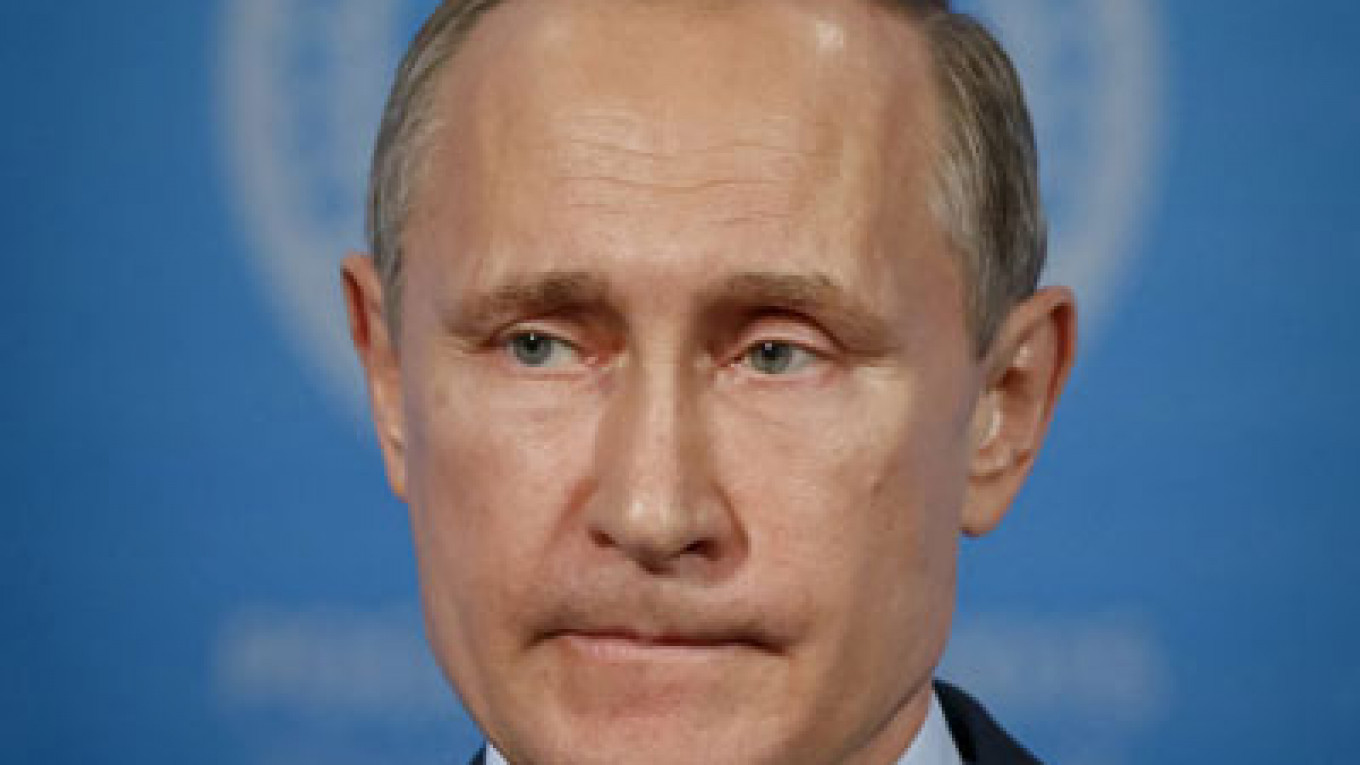The claim critics constantly repeat that President Vladimir Putin is guilty of all mortal sins has already become a tiresome and hackneyed cliche. There is a weightier question: Is Putin running Russia or is Russia running Putin? Even in tsarist and Soviet times, leaders rarely managed to fully subjugate the country and impose their will.
Peter the Great managed it, but the people retaliated by calling him the Antichrist. Former Soviet leader Josef Stalin also succeeded, but only with the help of the gulag, mass executions and terror. Even Vladimir Lenin was unable to do whatever he wanted with Russia. The Kronstadt rebellion forced him to abandon his surplus appropriation system in favor of a tax in kind, and to replace his military communism with the New Economic Policy (NEP) that at least temporarily brought back the free market that the Bolsheviks so hated.
Few people think about the fact that, beginning with Catherine the Great, mostly Western managers sat on the Russian throne. It was the foreign specialists invited to help those on the throne who ended up assuming the throne themselves. In fact, all the Russian emperors — given their heritage, foreign education, strong kinship to and business ties with other European courts and their habit of relying on foreign experts — can themselves be considered the main foreign managers of the Russian Empire.
Foreign management turned out to be an integral part of the Russian tsarist government. That being the case, many of the criticisms that the West routinely levels at Russians are rightly directed at Europe itself since it supplied Russia with managers over such a lengthy period. For example, during the reign of Tsar Nicholas I, the German Karl Robert von Nesselrode — a fan of the Austrian Prince Metternich — ran Russia's foreign policy for a full 40 years, and without bothering to learn a single word of Russian the entire time.
And yet, their Western education and foreign blood did not make those rulers "national traitors." Russians remember Catherine II, a German, as Catherine the Great because she took into account the Russian mentality and national traditions, and she conducted policy that reflected Russia's interests. As she herself wrote: "I understand the minds of the people, and according to that I conclude what actions my decree should produce."
When Alexander I was compelled to sign the Treaty of Tilsit with Napoleon in 1807, he knew it would not remain in force for long — and not because he was dissatisfied with the terms, but because he knew they did not suit Russia as a whole. Merchants, who were accustomed to conducting trade with Britain, expressed their outrage with a continental blockade. The army thirsted for revenge and the ordinary citizenry, in whom every church had instilled the belief that Napoleon was "devil spawn," felt bitter disbelief when they saw their sovereign embrace that "devil incarnate."
Many people are familiar with the words of Madame de Stael: "The method of government in Russia is autocracy, limited by the noose." Actually, historians note that later generations inserted the reference to a noose. I would add one more reference — to the merciless Russian revolt. The writer Dmitry Merezhkovsky said that it sometimes seems as if all of Russian history consists of a string of uprisings. By the way, those two factors, the "noose" and uprisings, probably carry a greater inherent danger than the risk of losing the next election.
Westerners several times stood at the helm of the Russian ship of state in later periods as well. The communist ministers who took charge after the end of tsarist rule were also Westerners: they only prayed to a different God — the Russophobe Karl Marx. The reformers of the 1990s also showed no signs of adoring all things Slavic.
In other words, to govern Russia according to Western thinking and against the will of the people is fraught with risk. That has always been true, and it remains so today. The Bolsheviks' attempt to instill Marxism in Russian life ended in failure, as did attempts by reformers in the 1990s to move Russia toward Western paradigms against the popular will. As the great reformer Tsar Alexander II said: "Managing Russia is easy, but ultimately futile." In each case, leaders tried to swim against the tide of the national mind-set. That is why nobody showed interest in the democracy of the Bolsheviks or of the liberals in the 1990s. Both were replaced with sham prostheses of democracy — artificial limbs on which Russia continues to hobble along. Critics of the current president should keep in mind that Putin is the main legacy of former Russian President Boris Yeltsin.
Just the same, Putin is smarter than his predecessor and tailors his policy to the moods of the people — and in some part helps form those sentiments. That is natural. If sovereignty is so dear to the majority of the Russian people, and if they are willing to pay any price to maintain or expand it, then Putin stands firmly for sovereignty. If Russians one day choose to return Crimea, he will hand it over. If the masses dislike the policy coming out of Washington, then the Kremlin also opposes it. Of course, Russians are not in love with many things that Putin does, but on the whole they are in agreement with him. That explains his unprecedented popularity.
So, those who blame Putin alone have missed the mark. Putin simply serves what he believes are the wishes of the Russian people — as he is able to understand them. It is another question as to whether the Russian people are right or wrong in their thinking — and the answer to that is far from straightforward.
Pyotr Romanov is a journalist and historian.
A Message from The Moscow Times:
Dear readers,
We are facing unprecedented challenges. Russia's Prosecutor General's Office has designated The Moscow Times as an "undesirable" organization, criminalizing our work and putting our staff at risk of prosecution. This follows our earlier unjust labeling as a "foreign agent."
These actions are direct attempts to silence independent journalism in Russia. The authorities claim our work "discredits the decisions of the Russian leadership." We see things differently: we strive to provide accurate, unbiased reporting on Russia.
We, the journalists of The Moscow Times, refuse to be silenced. But to continue our work, we need your help.
Your support, no matter how small, makes a world of difference. If you can, please support us monthly starting from just $2. It's quick to set up, and every contribution makes a significant impact.
By supporting The Moscow Times, you're defending open, independent journalism in the face of repression. Thank you for standing with us.
Remind me later.






